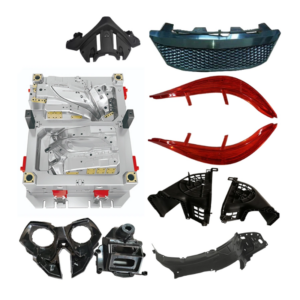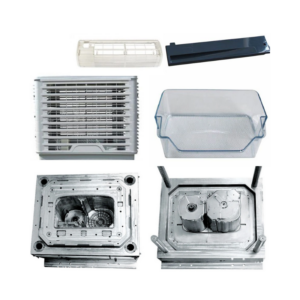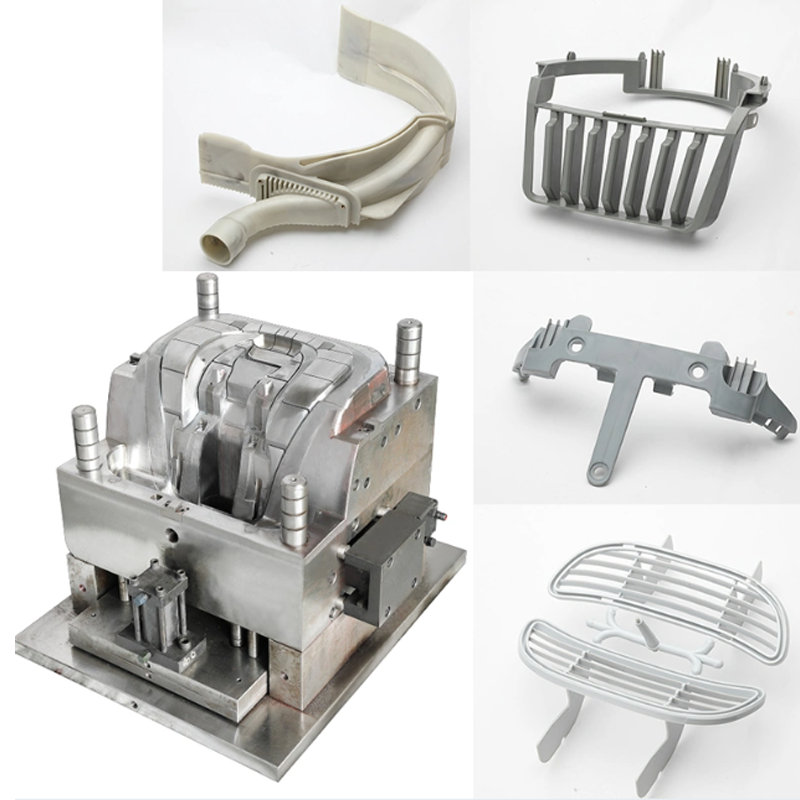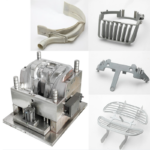High-Quality OEM Injection Molds for Industrial Helmet Components
Features:
| Basic Informations: | |
| Mould Cavity | Single Cavity, Multi Cavity |
| Process Combination Type | Progressive Die |
| Application | Household Appliances |
| Runner | Hot Runner, Cold Runner |
| Design Software | UG |
| Installation | Fixed |
| Certification | ISO |
| Standard | Hasco, Dme |
| Customized | Customized |
| After-sales Service | 1 Year |
| Mould Steel | P20h, 718h, 2316, S136, 2738, Stc |
| Mould Spare Parts | Ejectors/Water Tips/Rings/Seal Rings/Heater etc |
| Mold 3D Format | STP/Step/X-T/Igs |
| Mould Life | 0.8 Million Shots |
| Transport Package | Exported Wooden Case |
| Trademark | OEM/ODM |
| Origin | Xiamen, China |
| HS Code | 8480719090 |
| Production Capacity | 200 sets/Year |
Plastic Injection Product Design Review Process:
Upon receiving initial part designs from clients, we thoroughly analyze them along with the chosen plastic materials. For more complex designs, we prepare a Design for Manufacturability (DFM) report. This report, shared in PDF or PPT format, highlights any potential design issues and proposes optimal mold design concepts.
Clients receive the DFM report to review detailed findings and our suggested mold design approach. They then discuss whether they require adjustments to the part designs based on our recommendations. Typically, clients approve our modifications because of our expertise in designing parts suitable for efficient mold manufacturing, thereby streamlining the overall process and saving valuable time.
Plastic Injection Mold 3D Design:
Once the 3D designs of the parts are approved, we commence with the mold 3D design process. Prior to initiating the mold design, we gather detailed information on the shrinkage rate of the plastic raw material, specifications of the injection machine, and specific requirements for standard mold components.
Our highly experienced mold designers, each with over a decade of expertise, meticulously craft comprehensive mold designs. This includes detailed systems for ejectors, cooling, and runners. While the main structure of the mold is conceptually developed, we engage in discussions with clients to refine minor details as needed. This may involve incorporating features like limit switches or shot counters that were not initially included in the initial mold design submission.

Plastic Injection Mold Machining
- Mold Steel Procurement
– Upon client confirmation of mold designs, we proceed with the procurement and cutting of mold steel plates sourced from trusted suppliers. Detailed specifications including size and tooling requirements are clearly outlined in the purchase order. The steel cutting process is handled by the supplier, and before delivery to our facility, we rigorously inspect the steel hardness to ensure quality and adherence to specifications.
- Rough Tooling for Plastic Injection Molds
– For molds used in household appliances, CNC milling is primarily employed for rough tooling. However, larger molds may necessitate the use of a tooling center for faster processing. Following rough tooling, molds undergo precise tooling phases, which include high-speed CNC milling and CNC engraving to achieve accurate specifications.
- Precise Tooling
– Precise tooling encompasses various techniques such as high-speed CNC engraving, EDM (Electrical Discharge Machining), and EDW (Electrical Discharge Wire) tooling. CNC engraving tools, categorized by speed (high, middle, normal), are selected based on precision requirements and associated costs. Small, intricate details like ribs may require EDM using electrodes typically made of carbon or copper, with copper offering longer lifespan and durability.

- Deep Hole Drilling Tooling
– Deep hole drilling tooling is specifically used for creating cooling lines and ejector pin holes, ensuring precision and straightness that normal drilling machines may not achieve. This step is critical for maintaining mold integrity, especially for ejector pin holes.
- Polishing of Plastic Injection Molds
– Post precise tooling and drilling, molds undergo assembly and meticulous polishing. Molds intended for home appliances, which demand high-gloss finishes, undergo manual polishing to meet stringent surface quality standards that machine polishing cannot achieve.
These processes ensure the precise manufacture of plastic injection molds, meeting diverse industrial needs with high-quality, durable solutions.


